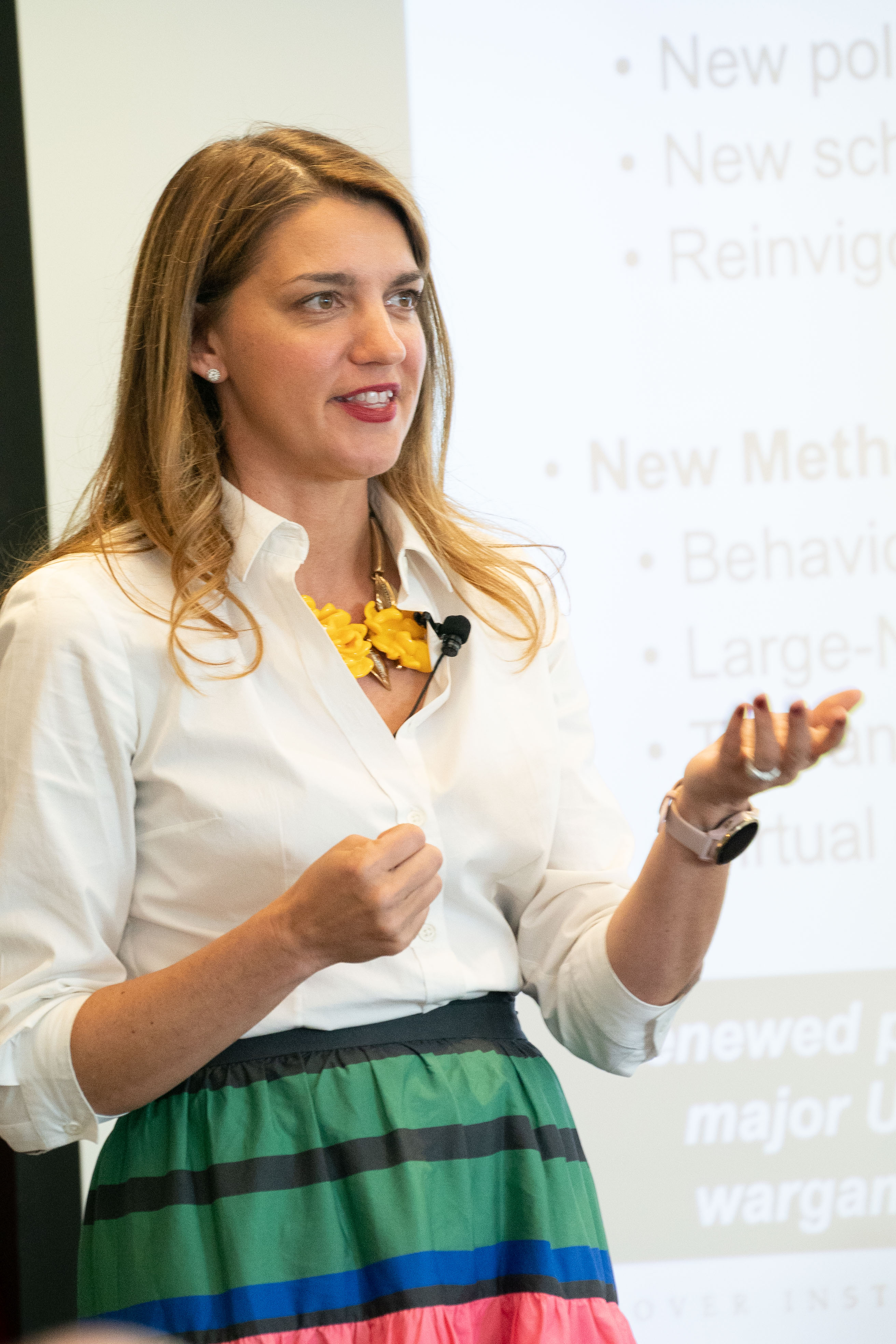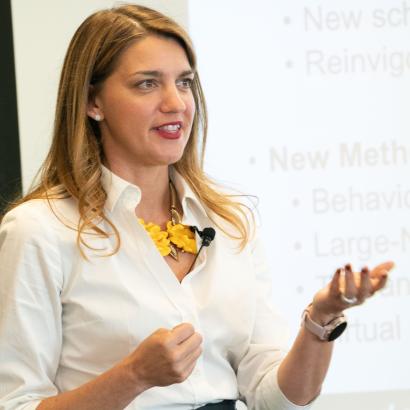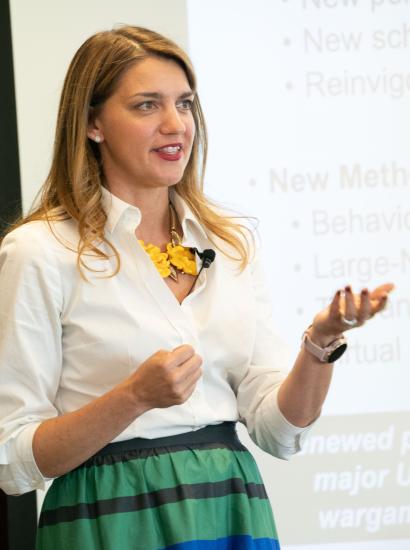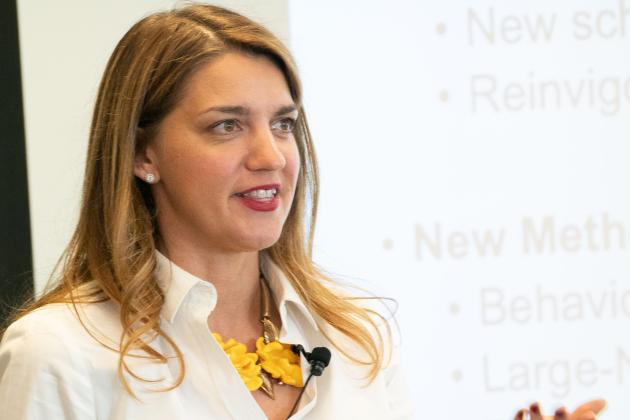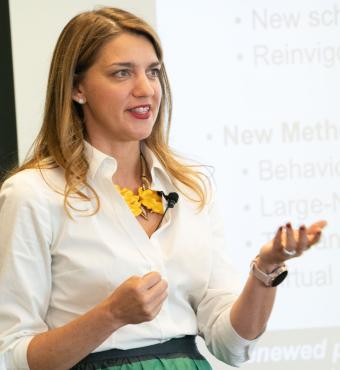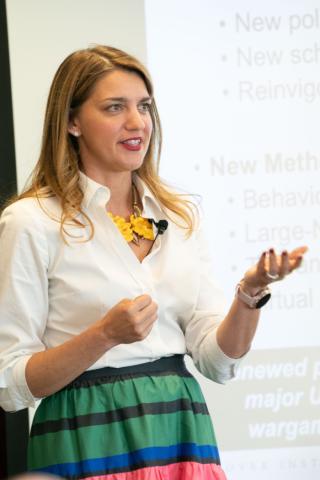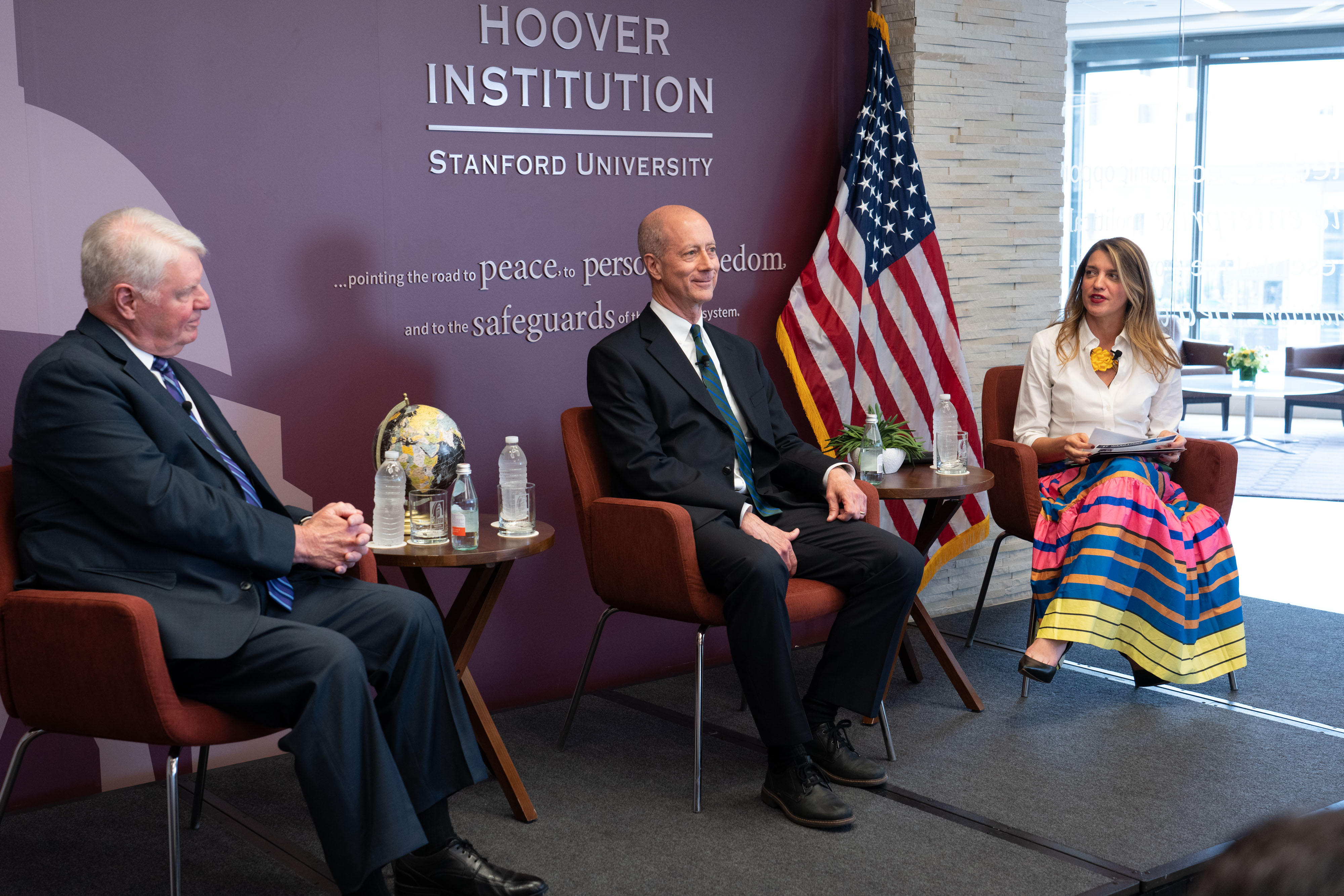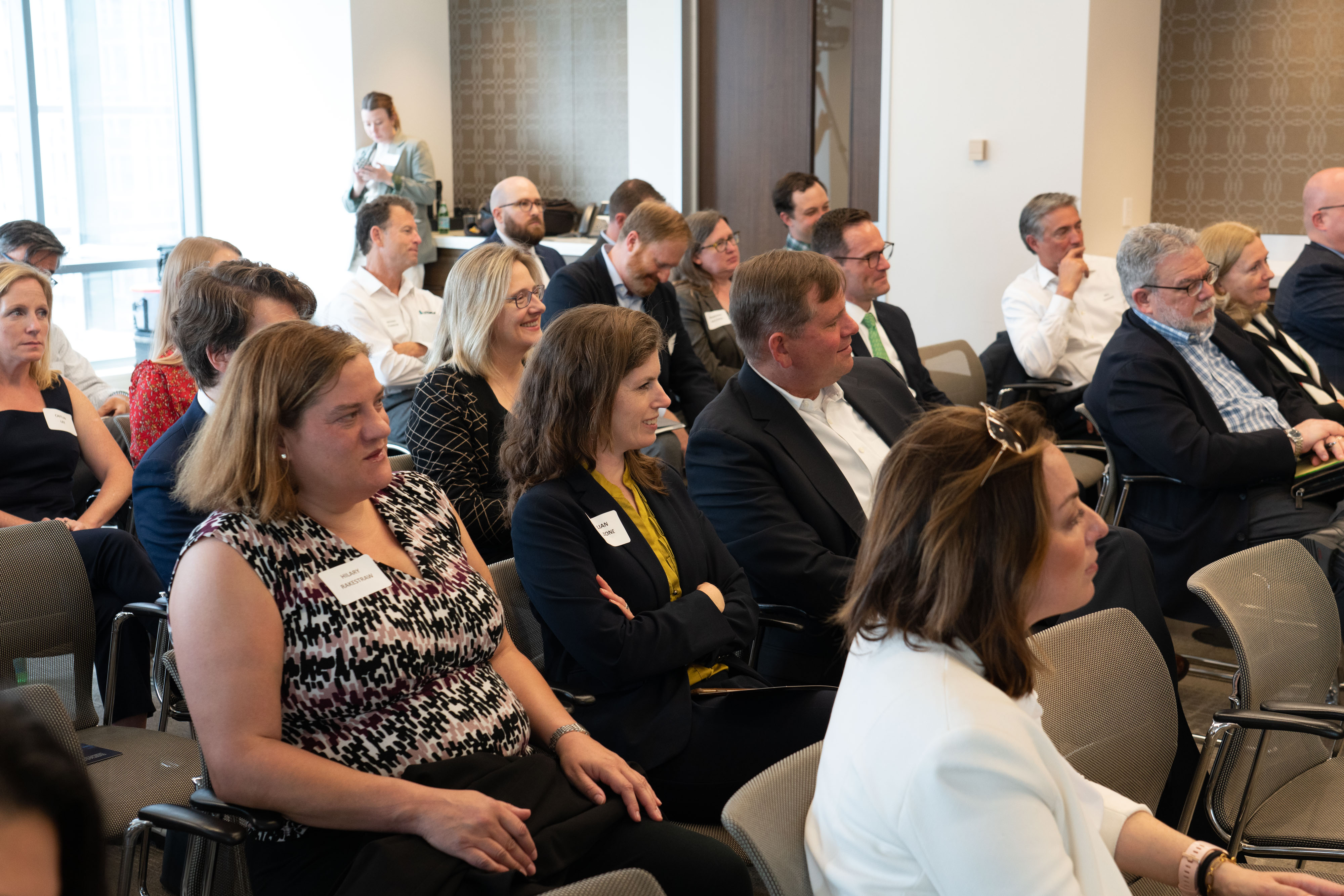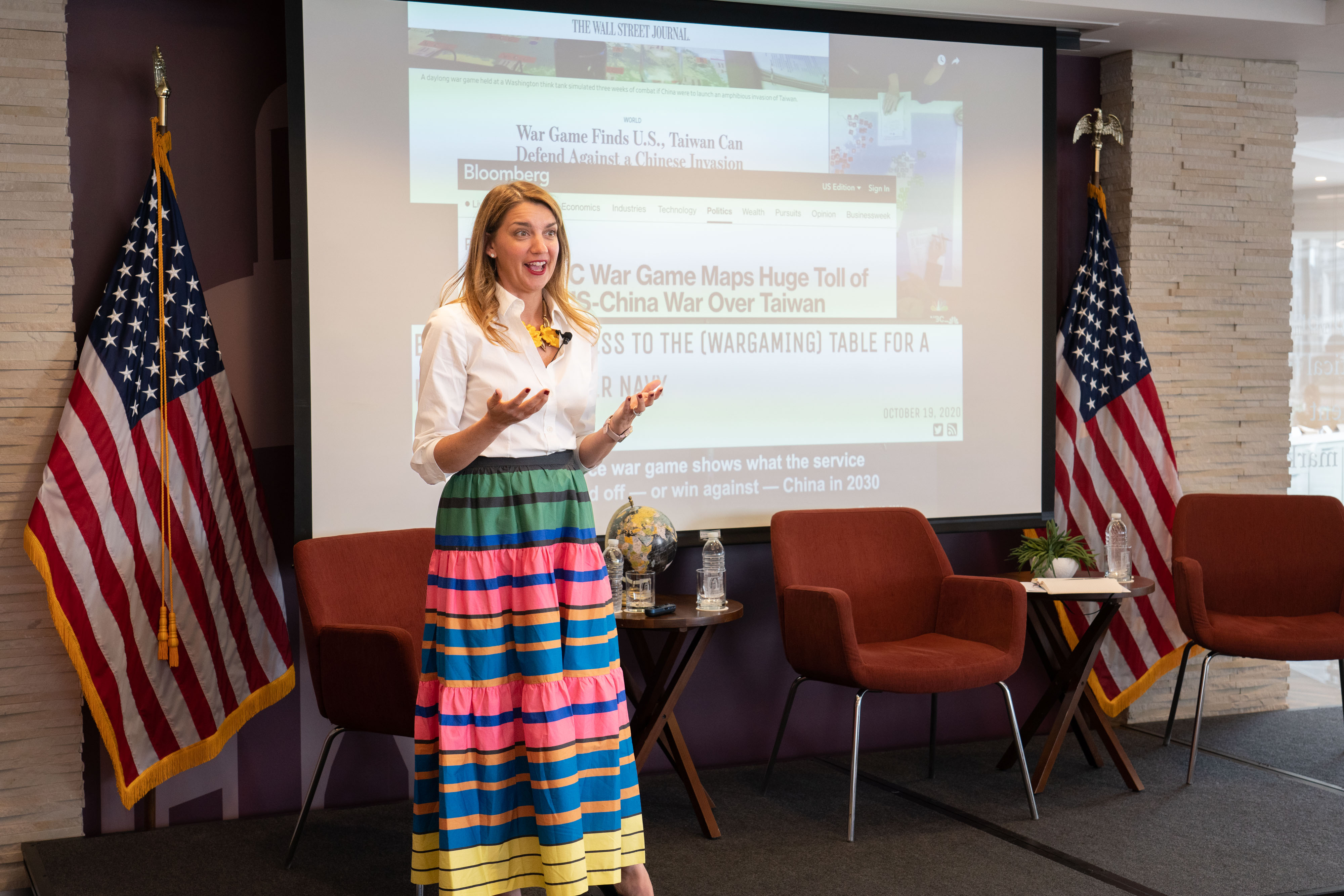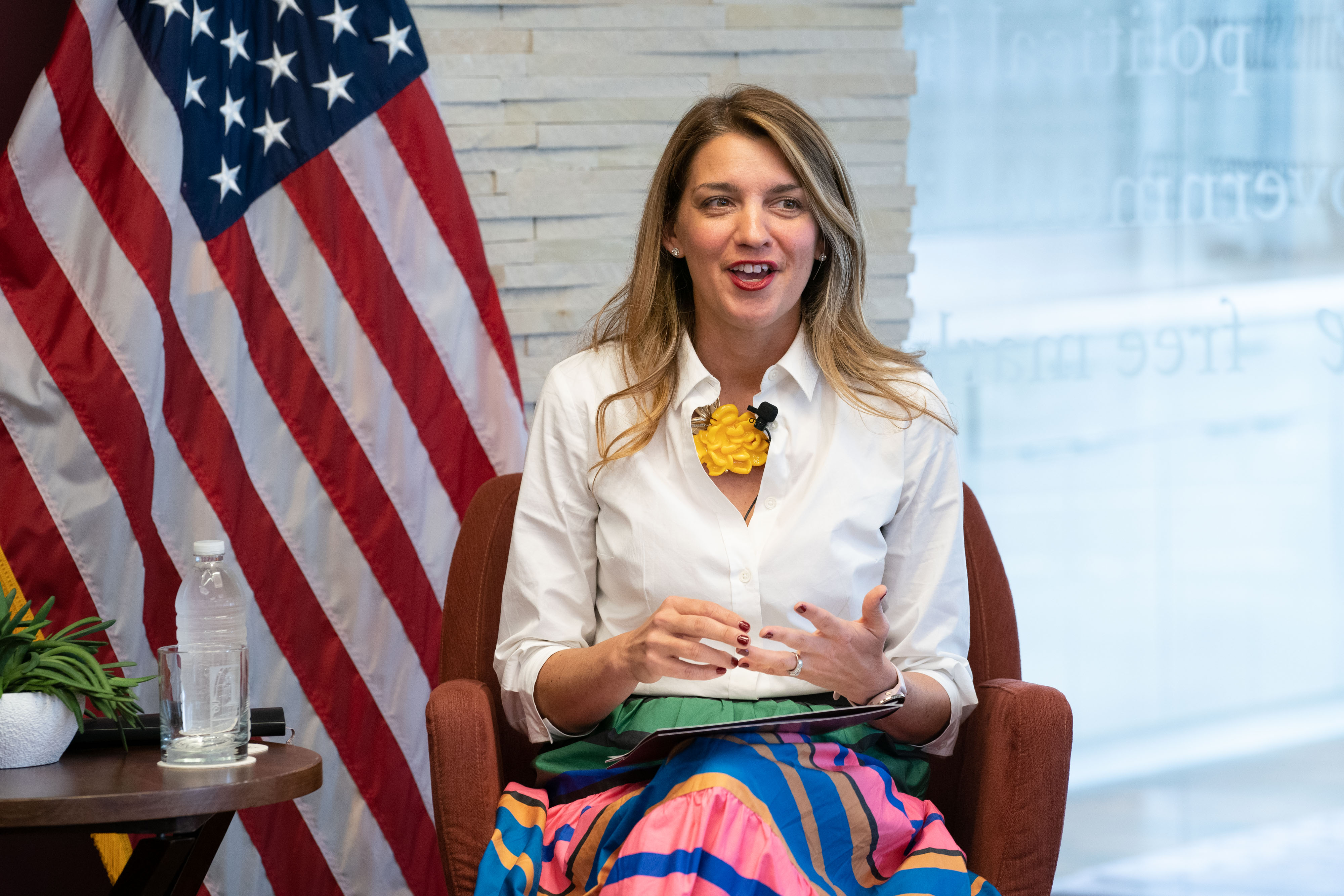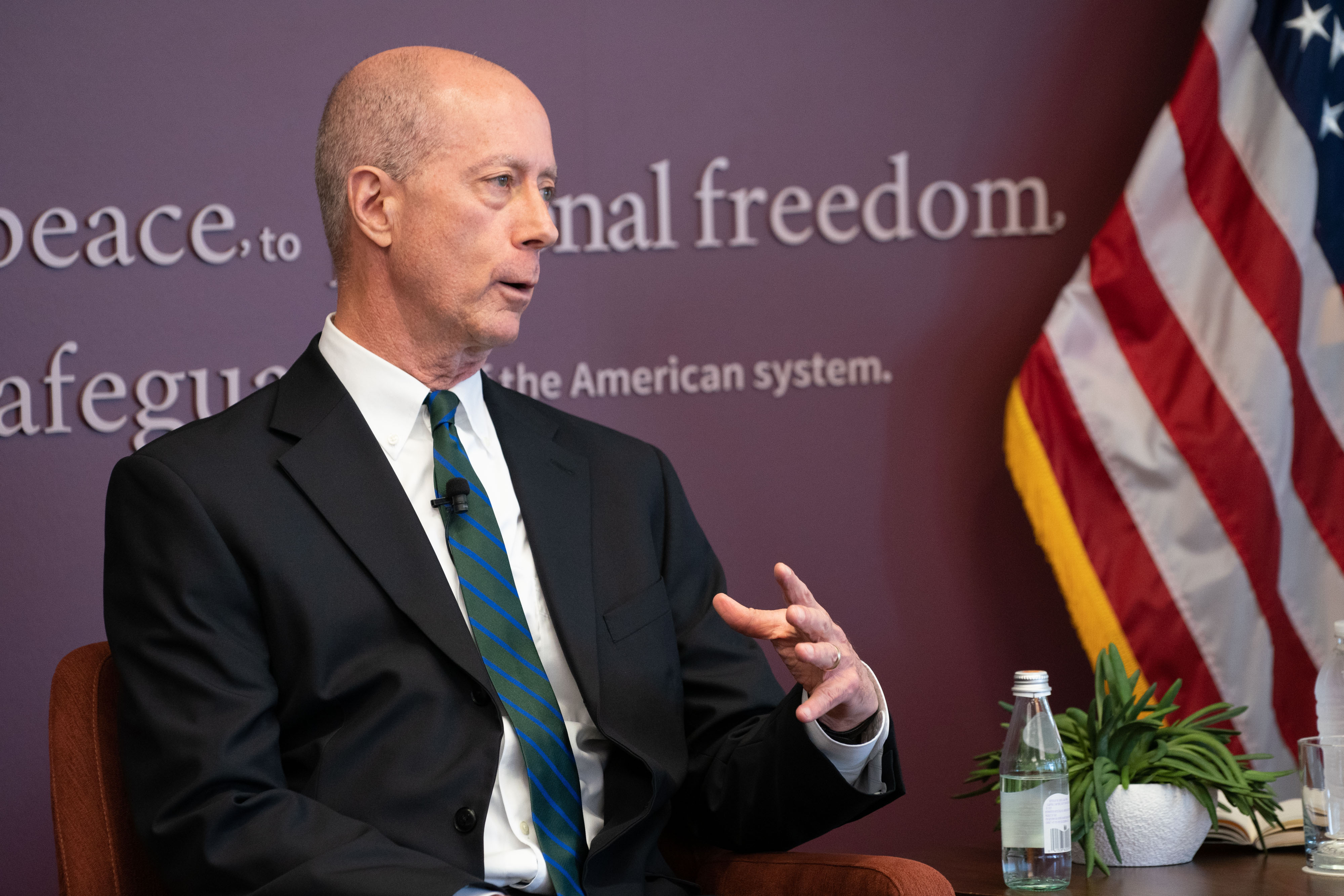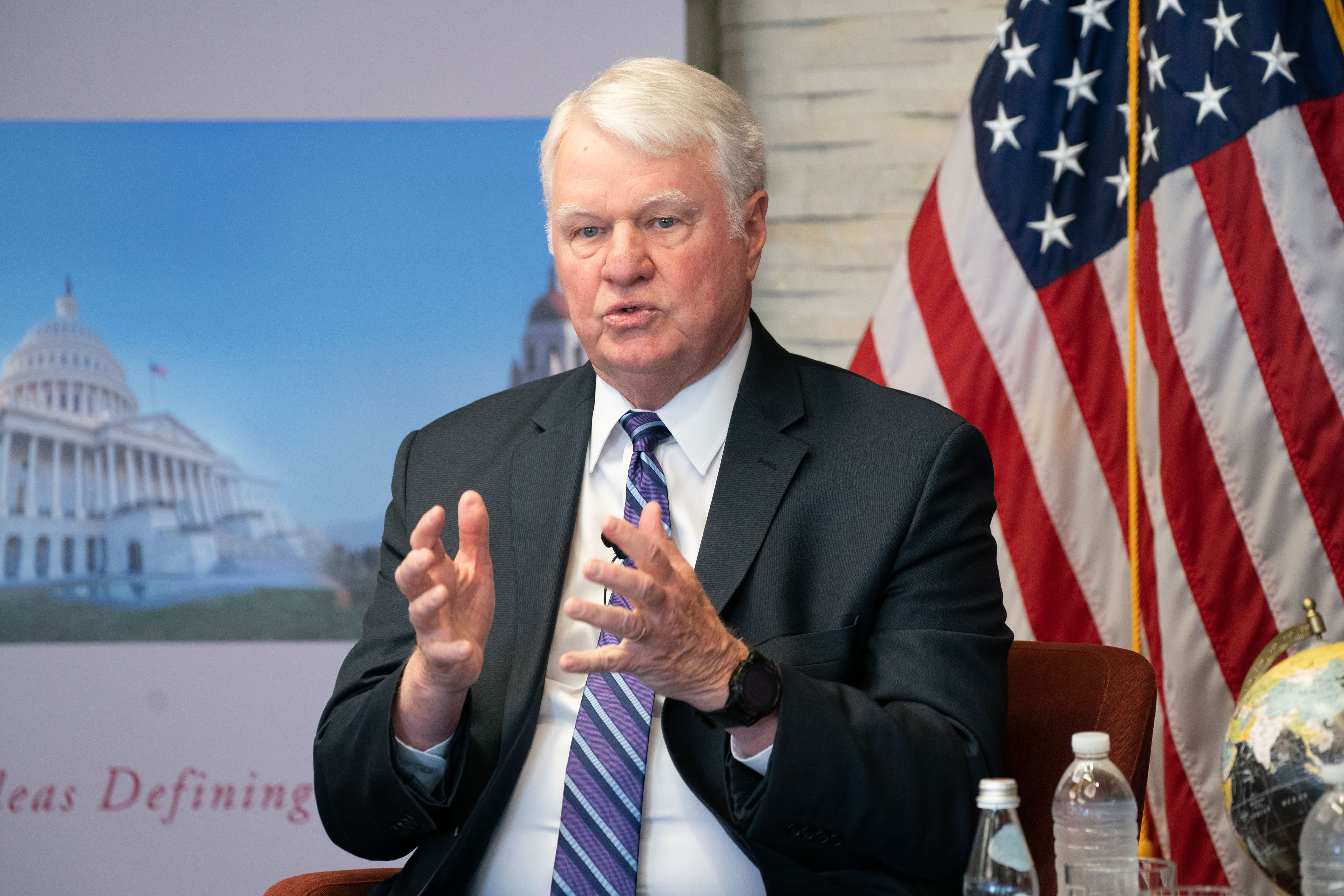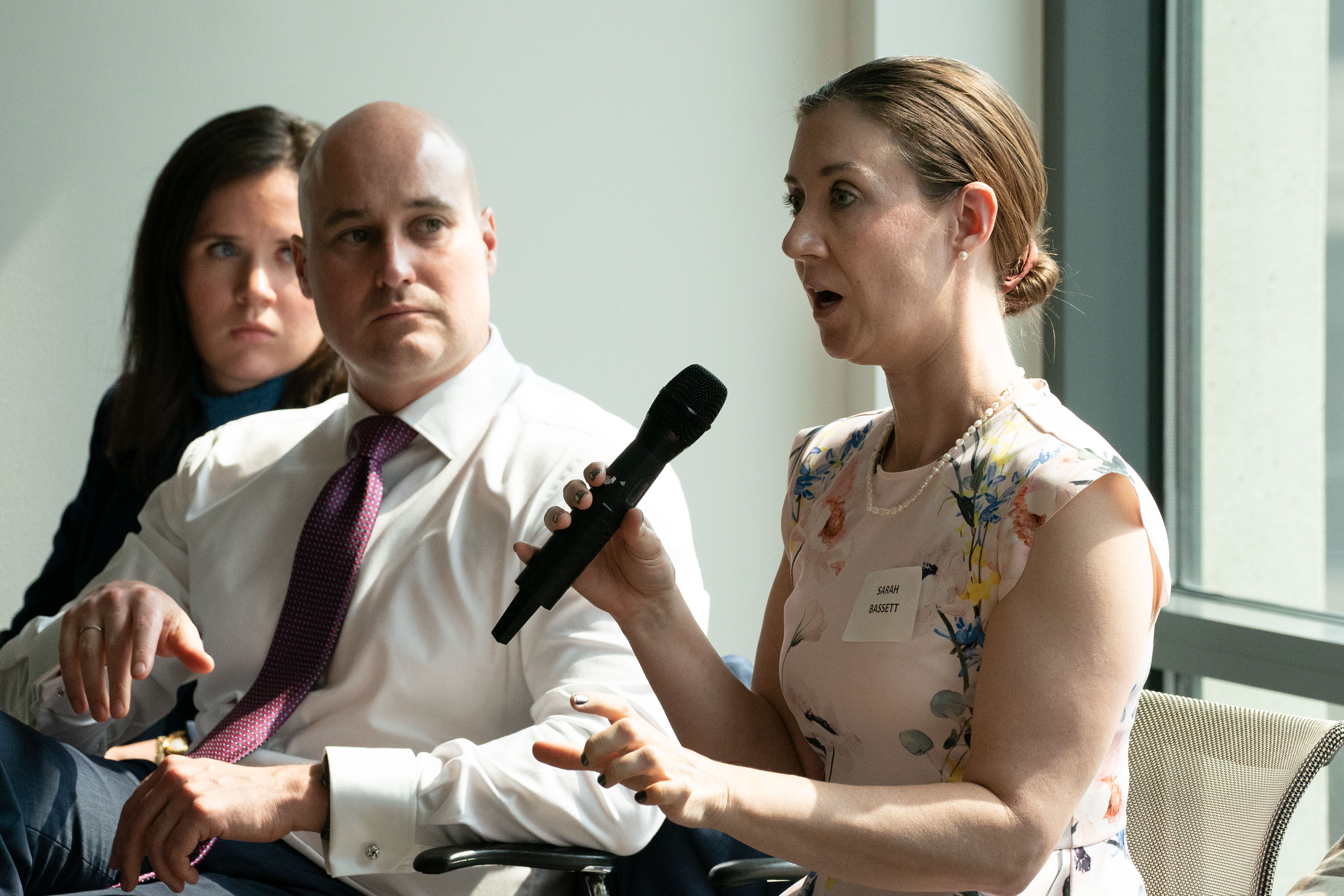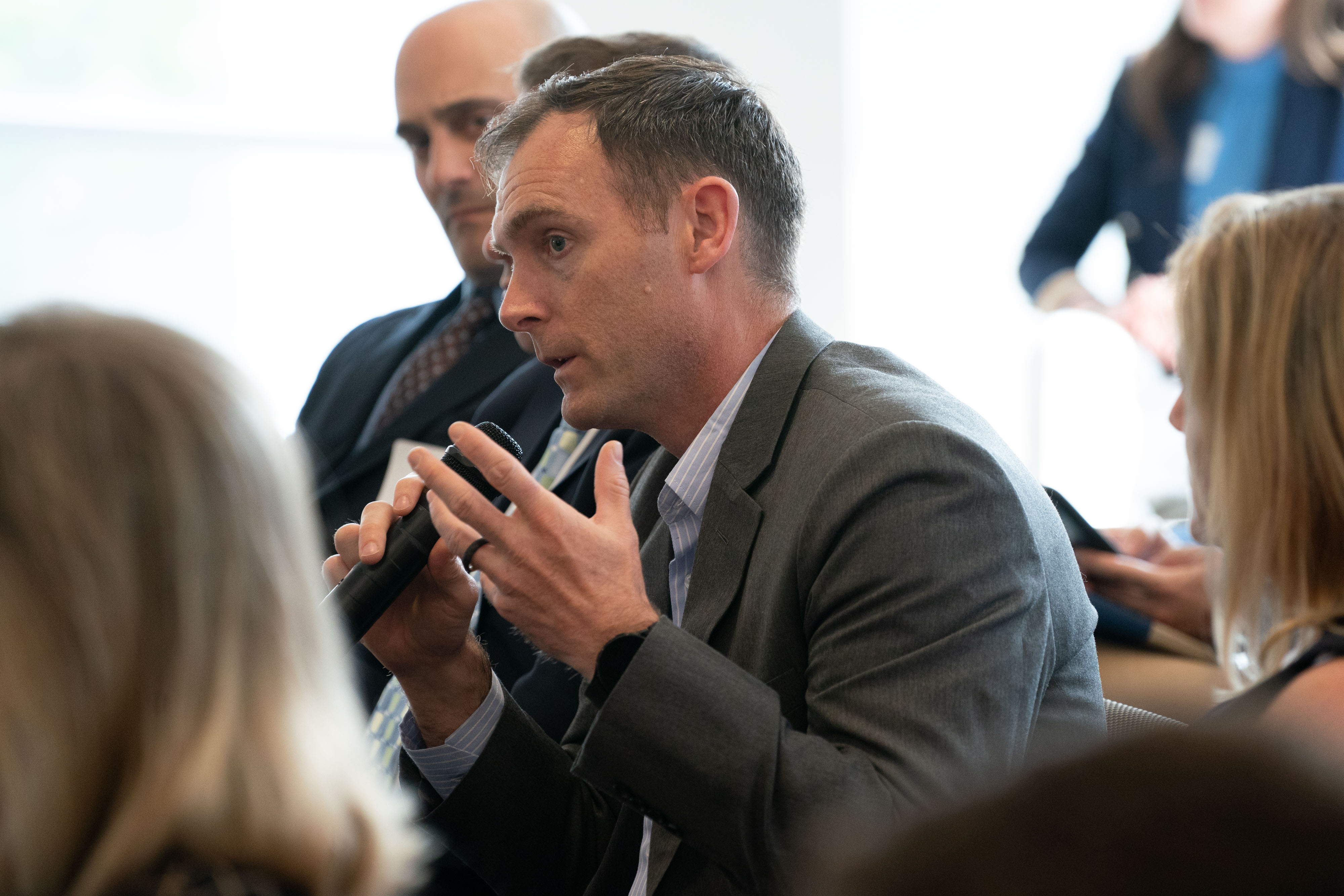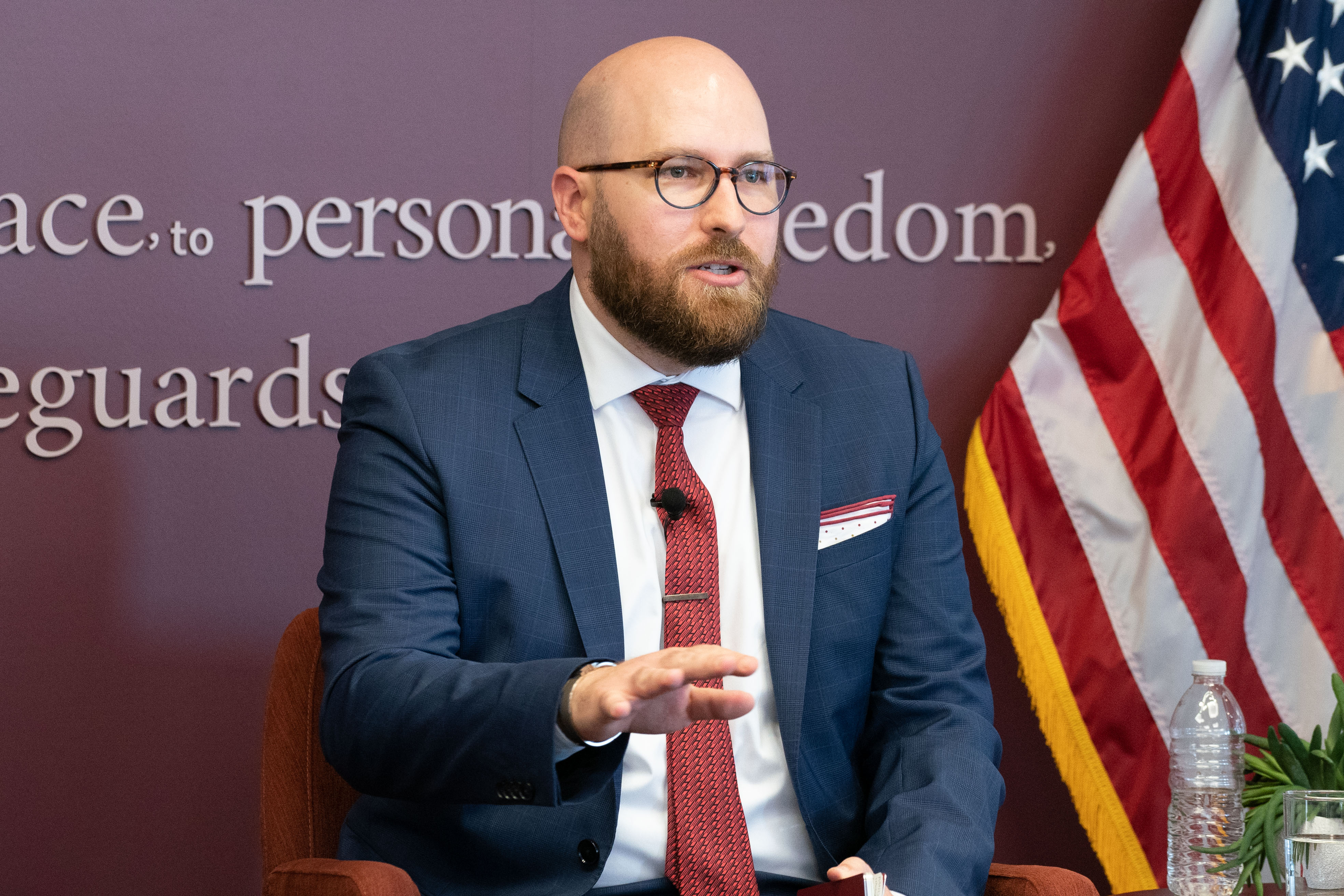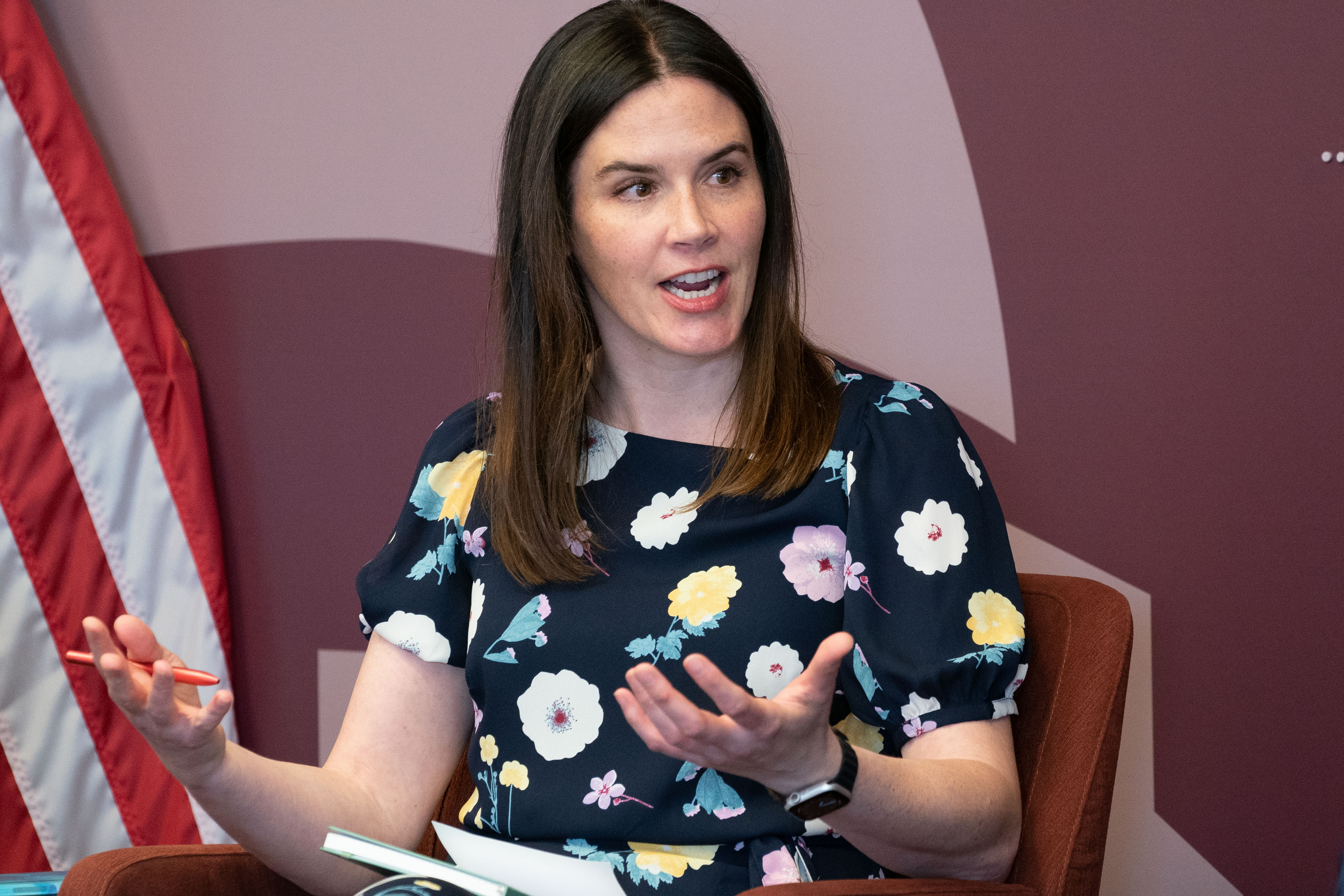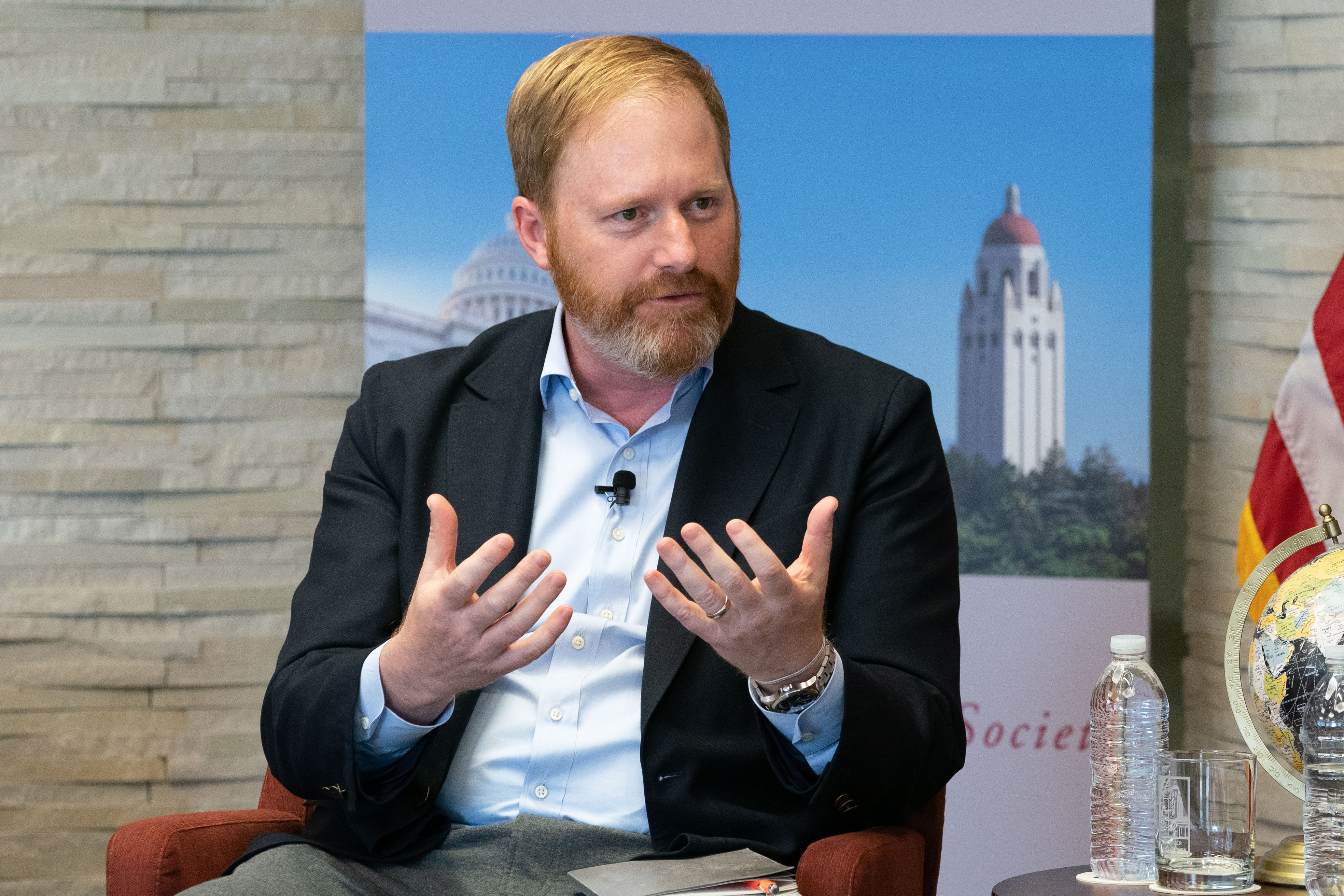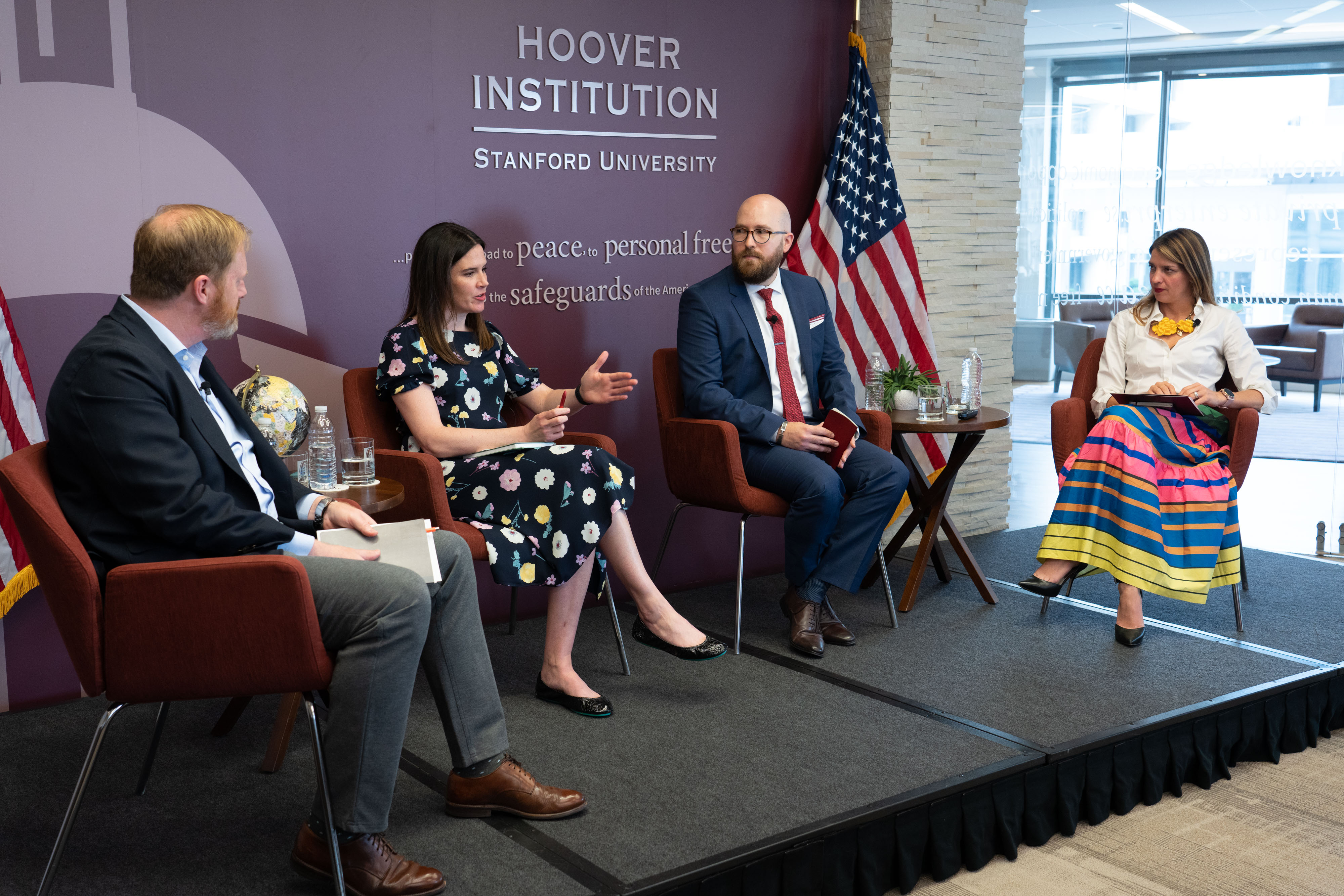Hoover Institution (Washington, DC) – Jacquelyn Schneider, a leading scholar on the intersections of technology, national security, and political psychology, launched Hoover’s new Wargaming and Crisis Simulation Initiative at a workshop in the institution’s Washington, DC, office on May 23.
Schneider has run over one hundred war games over the last five years with a diverse group of players around the world, both at the Hoover Institution and in her previous career as a professor at the US Naval War College in Newport, Rhode Island.
In her remarks, Schneider described the value of war games and why the Hoover Institution is a natural hub for the design and implementation of these exercises in which participants study and examine potential conflicts and role-play as decision makers to solve them.
“War games are having their moment. They are getting a disproportionate amount of attention in the news media and being overtly used in not just the defense-planning process but also the policy-making process,” Schneider said. “There has never been a better time to talk about what makes a good war game and how we make use of wargaming for policy.”
Unlike more traditional research methods of studying conflict and other catastrophic scenarios such as surveys, interviews, and analysis of documentary evidence, war games are unique in their experimental quality. They enable policy leaders to think through managing a crisis response.
For example, Schneider explained that she had been informed by Hoover Institution director Condoleezza Rice that wargaming was invaluable to her preparation in managing the response to the 9/11 attacks when she was White House national security adviser.
Schneider asserted that Hoover’s distinct feature among other think tanks—its world-renowned Library & Archives with more than six thousand collections documenting contemporary policy issues—makes it well positioned to expand the practice and research of wargaming. Within Library & Archives, Schneider is building out a Wargaming Archive. Within the next year, she plans to actively acquire games from academia, think tanks, and the government.
In the archive, players can access war game materials online from which they can organize their own simulations. Through the archive’s new website, researchers can also acquire and evaluate data about players’ decision making in war games.
Schneider described how vast amounts of new data being generated by policy practitioners participating in government war games and new research methods being developed among leading scholars on these simulations represent an extraordinary opportunity for the field. She maintained that the Hoover fellowship, located on the Stanford campus and closely linked to the policy community, can help bridge the strengths in these academic and practitioner spaces.
“We want to focus on data, incentivize work on the methodology of wargaming, build a community, and provide resources. So much of the wargaming community is proprietary—our focus is on being open source,” Schneider said.
At Hoover, Schneider is focusing on two to three war games per year, which currently encompass themes including the disruptive nature of artificial intelligence, the maritime and space environments, and tensions in Sino-American relations. In the future, the initiative will establish a fellowship program in which scholars will be invited to Hoover to design and run games that will ultimately be acquired and stored in the new archive.
Schneider is also convening scholars to develop methodologies for effective war game design and implementation, which she plans to organize into a volume to be published next year.
The initiative has already established partnerships with universities to teach methodologies. Additionally, Schneider, during briefings at the Hoover Institution, has engaged in outreach to state and federal officials about wargaming’s influence on public policy.
At the launch event in Washington, DC, Schneider moderated two panel discussions. The first panel, featuring former Congressman Mac Thornberry (R-TX) and Admiral Gary Roughead, USN, (Ret.), former chief of US Navy Operations and Hoover distinguished military fellow, considered the value of war games for public policy making.
Thornberry advocated for Congress and defense officials to participate in war games and learn their insights jointly. Such engagements would foster greater collaboration in solving real-world challenges and an understanding of how each side of the policy-making process can work better with the other. Further, Thornberry said that wargaming involving both groups can help facilitate the passage of congressional budgets that allocate the resources the military needs to achieve successful outcomes in potential conflicts.
Roughead explained that well-designed war games prompt defense leaders to think critically about how they would respond to the various scenarios they may experience in an actual conflict, including political pressures, economic disruptions, cyberattacks, and erosion of confidence in the military command structure.
“It’s in those games that you generate the intellectual juices, the curiosity, and the ability to think through some of these tough problems,” Roughead said.
Roughead argued that war games proved especially valuable during the interwar period. He maintained that nothing had surprised military planners in the run up to World War II, save for Japanese pilots who launched kamikaze attacks against US forces at Pearl Harbor and later in the Pacific Theater. He also stressed the importance of historical wargaming to help leaders understand future warfare. Roughead noted that a war game scenario involving the four great historic Eurasian empires—Russia, China, Turkey, and Iran—would be a worthwhile exercise to help inform defense strategies.
The second panel, centered on the utility of war games in national security decision making, featured Stacie Pettyjohn, senior fellow and director of the defense program at the Center for a New American Security; Matthew Turpin, visiting fellow at the Hoover Institution and former China director on the White House national security council; and John Emery, assistant professor of international security at the University of Oklahoma.
Pettyjohn compared the value of classified versus unclassified war games. Whereas classified games furnish actual and detailed intelligence concerning a potential crisis, they provide no precise answers. At best, they only offer insights on the issue at hand. Alternatively, unclassified war games conducted outside the Pentagon and other agencies enable players to think outside the box and challenge many of the government officials’ assumptions that are in large part shaped by their access to proprietary knowledge.
Turpin underscored the value of war games in helping players better appreciate the responsibilities of national security decision making. War games remind players that no decisions are perfect and that each decision results in consequences which they must inevitably face.
Acknowledging Turpin’s insights, Emery noted the ethical dimension of wargaming. Ethics, he explained, is reasoned through emotion. In his research of the RAND Corporation’s Social Science Division Cold War Games designed and run in the 1950s, he found that the role of emotion was central for players. Those players who had previously advocated bold and imaginative action in their publications acted with extreme caution when they were confronted with the burden of policy making.
“It’s very different when you write down a possible 100,000 casualties in your paper than when you are the one, even in the game-simulated environment, having to make that decision,” Emery said.
Click here to learn more about the Hoover Institution’s Wargaming and Crisis Simulation Initiative.
Watch the Wargaming and Crisis Simulation Initiative event videos
Session 1
Session 2
Session 3







